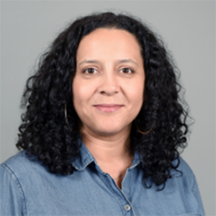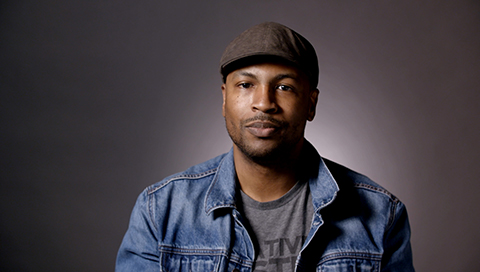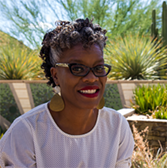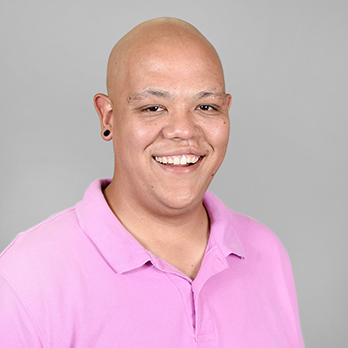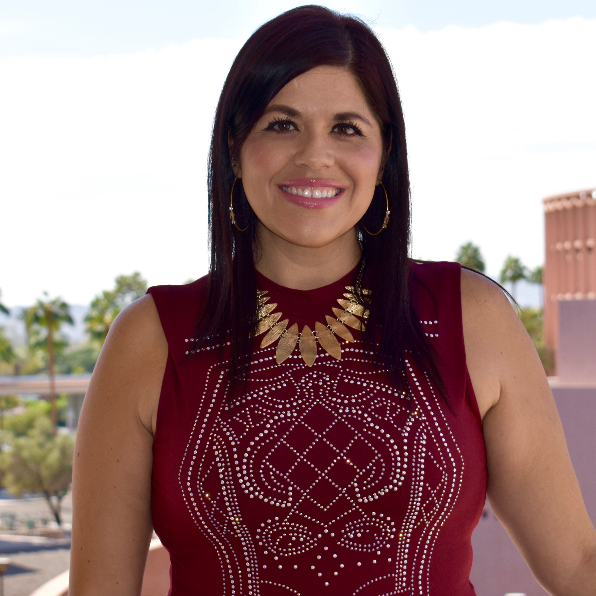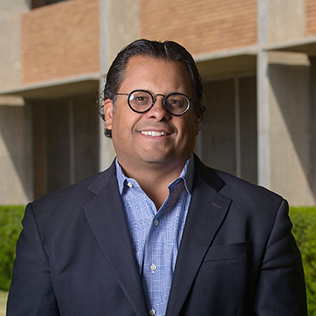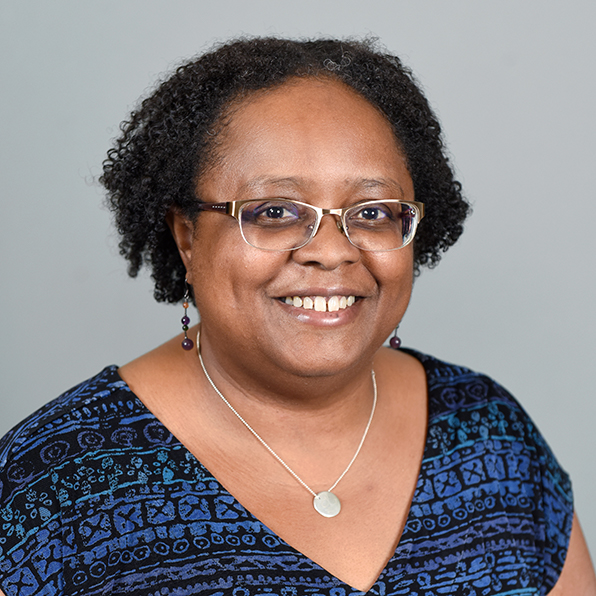About This Course
Building on the race course, this To Be Welcoming course focuses on bias and the experiences of African Americans in the United States. Here, we explore how racism and biases affect the economic, social, and cultural experiences of peoples of African descent in the United States. We begin with key terms like Black or diaspora, followed by a video module featuring faculty experts answering commonly asked questions. Next, we provide context by exploring the ways Blackness is used in media, different social contexts, and in policing. We conclude with points for starting your own discussions on Black/African American bias and considering appropriate responses.
Course Overview
Have you ever heard someone say “the only race is the human race,” “racism is a thing of the past,” “it’s racist to bring up racism,” “talking about racism draws attention to a problem that isn’t there,” “racism impacts White people more than Black people,” or “if we all just looked at ourselves as human beings, racism would not be a problem”?
While these kinds of post-racial, post-civil rights understandings can be well-intentioned, they can also be misguided, sending the message that society is already inclusive without using empathy or dialogue to engage the voices and experiences of Black Americans. It is certainly true that the Civil Rights Movement and the ruling of Brown v. Board of Education, which required schools to include Black students in their student bodies, have tried to make things more equitable. Yet we must be vigilant and understand that social change takes time. If we are to create a truly inclusive society, we cannot assume things are equal, but should talk with all kinds of people to learn about the political, social, and economic conditions they face. This requires us to continuously engage our skill sets of empathy and dialogue. Understanding the challenges facing Black Americans in the United States will help to create a more inclusive society.
This course will ask you to better understand the roots and impact of the context and history facing Black people in the United States. We will begin by understanding the social construction of race before moving into contemporary understandings and realities of race relations as they apply to Black people. This means creating a baseline understanding of what “Blackness” means in modern and historical contexts by discussing the complexity of the Black diaspora and the pressing social issues facing Black communities across the United States. We will investigate the relationship between society and the individual, the way past practices influence current events, and the impact of social structures on people's lives. Lastly, this course is designed to foster personal application. We encourage you to connect course content with your own personal experience, learning, and values. Throughout the course, you should ask yourself:
- Where did my understanding of Blackness, Black People, or African Americans come from?
- What does it mean to be Black in the United States? How are personal and social perceptions of Black people informed by economic or academic prejudice and local practices?
- How are identities valued, defined, or limited by the intersections of race, class, and gender on a social and individual scale? Where does the economy come into play?
- What are some key issues facing Black Americans today?
The foundational course introduced you to the roles that civility, empathy, and dialogue play in understanding and addressing biases. You were also introduced to the “bias quadrant” to help you identify manifestations of individual, systemic, conscious, and unconscious bias. In this course, you will use these tools as you listen to experts and engage with key issues that impact Black people in the United States. You will then begin to apply civility, empathy, and dialogue to deepen your understanding of some of the issues Black Americans face.
Please note: You may also be familiar with the term “African American,” which is normally used to describe the descendants of Africans enslaved and brought to the United States of America. In this course, we use both “Black” and “African American,” the terms used by the United States Census Bureau, and will distinguish them at appropriate points.
Course Objectives
At the end of this course, you will be able to:
- Define and understand when to use different terms like “African American” and “Black.”
- Identify and explain how different historical, economic, gendered, and other social factors influence Black people’s lives in the United States.
- Define the Black diaspora and explain how systemic bias has impacted Black people and African Americans.
- Identify specific and intersectional issues affecting Black and other communities.
Learners who complete this course will earn a digital certificate of completion.
Meet Your Instructors
Dr. Mako Ward
Clinical Assistant Professor
School of Social Transformation
Arizona State University
Mako Fitts Ward's research focuses on intersectional, feminist analyses of hip-hop cultural production and community organizing. She is the co-founder of "Women Who Rock," a digital archive project at the University of Washington and collective of musicians, media-makers, performers, artists, scholars and activists committed to documenting the role of women in popular music and the formation of cultural scenes and social justice movements. Ward has been a contributing blogger for Ms. and Huffington Post and has published popular and scholarly essays on body ethics and aesthetics among women of color, media and gender images, women in hip-hop, gentrification and cultural displacement, and Black women’s social movement organizing in the early 20th century. She teaches courses on intersectionality, gender and hip-hop, ethnic studies, the African diaspora, justice and women’s social movements.
Dr. Ersula J. Ore
Lincoln Professor of Ethics
Assistant Professor
School of Social Transformation
Arizona State University
Dr. Ersula J. Ore is the Lincoln Professor of Ethics in the School of Social Transformation and Associate professor of African and African American studies. Her research explores the suasive strategies of Black Americans as they operate within a post-emancipation historical context, and gives particular attention to the ways physical and discursive violence influences performances of citizenship. Dr. Ore is a 2013 Institute for Humanities Research Fellow at ASU, and recipient of the 2018-2019 Outstanding Mentor Award for the College of Global Health. Her book Lynching: Violence, Rhetoric, and American Identity (2019), which explores American lynching as an ongoing practice of racialized citizenship, received the 2020 Book Award from the Rhetoric Society of America.
Dr. Keon M. McGuire
Associate Professor
Mary Lou Fulton Teacher's College
Arizona State University
Dr. Keon M. McGuire is an Associate Professor of Higher and Postsecondary Education in the Mary Lou Fulton Teachers College and a Faculty Affiliate with the School of Social Transformation. Dr. McGuire's research agenda focuses on the status and experiences of minoritized students across postsecondary educational settings. Drawing from Africana and other interdisciplinary frameworks, Dr. McGuire examines how race, gender and religion shape minoritized college students’ identities and their everyday experiences. Additionally, Dr. McGuire investigates the ways racism, sexism, and heteronormativity undermine the experiences of minoritized college students as well as they ways students resist and respond to such marginalization. In 2019, he was named a National Academy of Education (NAEd)/Spencer Postdoctoral Fellow and ACPA Emerging Scholar.
Jeremiah Chin, J.D. Ph.D.
Postdoctoral Research Fellow
Center for Indian Education
Arizona State University
Jeremiah Chin, J.D. Ph.D., graduated from Arizona State University in 2016 with a JD from the Sandra Day O’Connor College of Law and a PhD from Justice and Social Inquiry in the School of Social Transformation. His research focuses on the intersections of race, law, and science—particularly in the Supreme Court. His dissertation looked at the role of social science data in Supreme Court opinions on Affirmative Action and Fair Housing, uncovering the interplay between Amicus Briefs, data and opinions of the Court. Currently, he is a postdoctoral research fellow at the Center for Indian Education, with research looking at the School to Prison Pipeline, the intersection of Race and Indigeneity, and importantly, co-creating a Critical Legal Preparation Program that would seek to create a pipeline to law school for underrepresented and first-generation students.
Dr. Jessica Solyom
Associate Research Professor
School of Social Transformation
Arizona State University
Jessica Solyom, Ph.D., received her doctorate in Justice and Social Inquiry from Arizona State University. She has worked in research, program development, and program evaluation for postsecondary institutions in promoting diversity in curriculum, pedagogy, and classroom management for over 10 years. Her research focuses on diversity, belonging, and justice. Her scholarly publications have explored the justice-related struggles of historically underrepresented students including explorations of race and gender in student leadership, persistence for students of color in predominantly white postsecondary settings, and education rights activism among Indigenous college students. She is currently an Associate Research Professor and teaches courses on Research and Inquiry, Critical Race Theory, and Indigenous Knowledge Systems. Dr. Solyom serves as a mentor at the Center for Indian Education (ASU) in preparing and training rising students of color as community embedded researchers and servant-leaders.
Dr. Bryan McKinley Jones Brayboy
Special Advisor to the President on American Indian Affairs
President’s Professor
School of Social Transformation
Director, Center for Indian Education
Arizona State University
Bryan is President’s Professor in the School of Social Transformation at Arizona State University. He is the author of over 90 scholarly products. His research focuses on the role of race and diversity in higher education, and the experiences of Indigenous students, staff, and faculty in institutions of higher education.
Video Contributor
Dr. Lisa M. Anderson
Associate Professor of Women & Gender Studies
School of Social Transformation
Arizona State University
Lisa Anderson is an associate professor of women and gender studies in the School of Social Transformation at Arizona State University. She received her bachelor's from Mount Hoyoke College, master's from Smith College, and doctorate in theatre history and criticism from the University of Washington. Her current research interests include the performance of gender; race, gender and sexuality in popular culture; feminist semiotics and phenomenology. Her most recent book, "Black Feminism in Contemporary Drama," was published by University of Illinois Press in 2008. She is currently working on a project with University of Nebraska press on black women, power, and representation in television. She teaches graduate and undergraduate courses on feminist theory, film, representation, and performance in WGS.
Frequently Asked Questions
What web browser should I use?
The Open edX platform works best with current versions of Chrome, Firefox or Safari, or with Internet Explorer version 9 and above.
See our list of supported browsers for the most up-to-date information.
